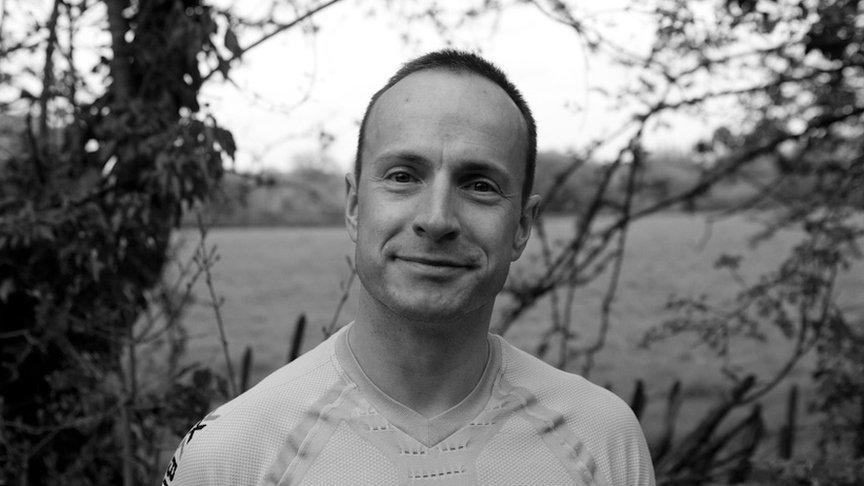Parkinson's disease: Wantage campaigner Alex Flynn dies
- Published

Alex Flynn was in Nepal preparing to become the first man with Parkinson's to climb Mount Everest
An explorer who took part in a series of daunting challenges to highlight the impact of Parkinson's disease has died.
Alex Flynn was in Nepal as he sought to become the first person with the condition to climb Mount Everest.
Mr Flynn, from Oxfordshire, was 36 when he was diagnosed in 2008 and completed adventures including a 3,256 mile (5,240km) voyage across the US on foot, bike and kayak.
His family said they had been left with "broken hearts" following his death.
Allow X content?
This article contains content provided by X. We ask for your permission before anything is loaded, as they may be using cookies and other technologies. You may want to read X’s cookie policy, external and privacy policy, external before accepting. To view this content choose ‘accept and continue’.
In a statement on Mr Flynn's website, his family added: "He went out exactly how he would have wanted to, off the high of having completed another adventure on top of the world about to step into a helicopter ready to take on the next challenge."
Mr Flynn's previous challenges included a 160-mile (257km) run in the Bavarian Alps, an ultra-marathon in the Sahara desert and a 279-mile (450km) expedition in the Swedish Arctic.
Last year, during lockdown, he climbed the equivalent of 2.3 times the height of Mount Everest by walking up and down the stairs in his home in Wantage, over seven and a half days.
Lord Mayor of Oxford Mark Lygo said Mr Flynn was "a superhuman who never gave up", who "will be missed by everyone" he met.
Mike Ayre, the chairman of trustees of Wantage-based Parkinsons.Me charity, said Mr Flynn's death had been a "terrible shock" and added it had been "humbled" to receive donations in his memory.
There is currently no cure for Parkinson's disease, external, which leads to parts of the brain becoming progressively damaged over years.
The three main symptoms are involuntary shaking of parts of the body, slow movement and stiff and inflexible muscles.
Most people develop symptoms when they are over 50 but about 5% of sufferers first suffer symptoms when they are under 40.

Follow BBC South on Facebook, external, Twitter, external, or Instagram, external. Send your story ideas to south.newsonline@bbc.co.uk, external.
Related topics
- Published28 August 2012
